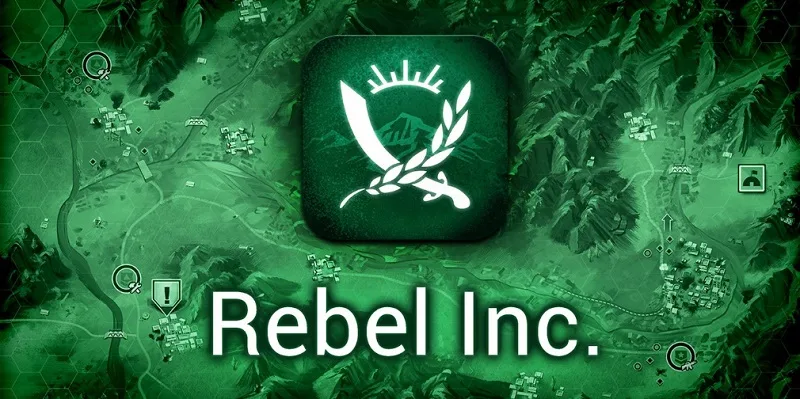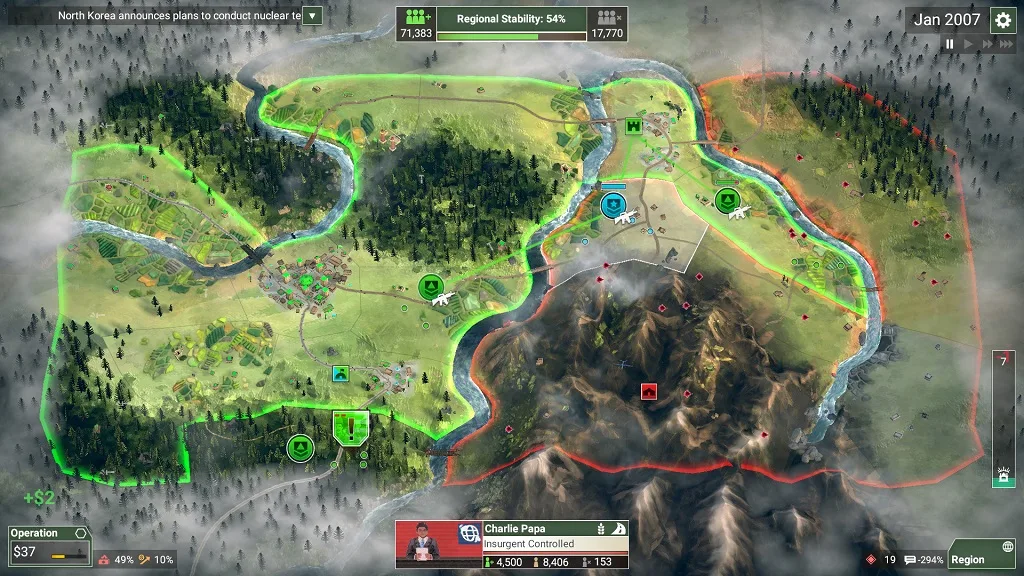
Welcome to our detailed exploration of Rebel Inc, a captivating mobile game that has intrigued players around the world. This article provides an in-depth review of the game, its mechanics, storyline, and offers expert tips to enhance your gaming experience.
Rebel Inc was developed by Ndemic Creations, a renowned name in the gaming industry due to their earlier success with Plague Inc. Launched in 2018, Rebel Inc offers a unique blend of strategic planning and simulation. The game challenges players to stabilize a war-torn region by balancing military and civilian priorities, showcasing a deep understanding of counterinsurgency tactics.
The game stands out for its realistic simulation of post-war recovery scenarios, where players must manage both military resources and civilian needs to prevent chaos. Its complex algorithm adjusts based on player decisions, making each playthrough unique and challenging.
The plot of Rebel Inc is set in a fictional country where the government has collapsed, and various factions vie for control. Players step into the shoes of a leader tasked with restoring peace and rebuilding the nation. The game involves strategic deployment of resources to different sectors, including education, health, and defense, to win support from the populace.
As you progress, the game introduces more complexities like corruption, insurgent attacks, and international aid, which add layers of difficulty and realism. The dynamic narrative adapts to the choices you make, influencing how the local population and the broader international community perceive your efforts.
Key to succeeding in Rebel Inc is understanding the local dynamics and carefully managing your actions to avoid alienating any group. The end goal is to achieve stability and prevent the insurgents from seizing control, all while maintaining enough public support to govern effectively.
Success in Rebel Inc requires a balanced approach. Here are four critical strategies to help you stabilize your region effectively:
Additionally, keep a close eye on the game’s indicators, such as public opinion and regional stability, to adjust your strategies in real time. Reacting swiftly to insurgent attacks by deploying troops and aid can prevent areas from falling out of control.
Understanding the terrain is also crucial. Geographic features can influence the mobility of your forces and the insurgents, affecting your control over the area.
While both Rebel Inc and Plague Inc are creations of Ndemic Creations, they cater to very different gaming experiences. Plague Inc focuses on creating and evolving a pathogen with the goal of infecting the global population, whereas Rebel Inc is about stabilizing a region post-conflict.
Rebel Inc demands a more dynamic interaction with the game environment, involving negotiation, strategic resource allocation, and real-time decision-making. In contrast, Plague Inc requires a more analytical approach to evolving and spreading a disease.
Another significant difference is the ethical dimension. Rebel Inc involves managing real-world issues like military tactics, governance, and civilian welfare, providing a more profound and impactful gaming experience.

Rebel Inc distinguishes itself from other strategy games by focusing on the socio-political aspects of conflict resolution rather than just warfare. Unlike typical strategy games that emphasize conquest or destruction, Rebel Inc simulates the challenges of nation-building.
The game’s complexity in managing both military and civilian aspects offers a more in-depth strategy experience. The integration of political, economic, and military strategies is seamless, providing a realistic simulation of leadership and governance.
Furthermore, the AI in Rebel Inc is highly sophisticated, capable of adapting to player decisions in a way that continuously challenges the player, making it stand out from other strategy games where opponents may become predictable.
Given the critical acclaim and popularity of Rebel Inc, fans are eagerly anticipating a sequel or continuation of the franchise. The unique gameplay, coupled with the deep narrative and strategic depth, has created a substantial fanbase.
A continuation could expand on the current game’s mechanics, offering new scenarios or even a different historical context. The potential for a sequel to introduce more complex diplomatic interactions and a broader scale of operation is immense.